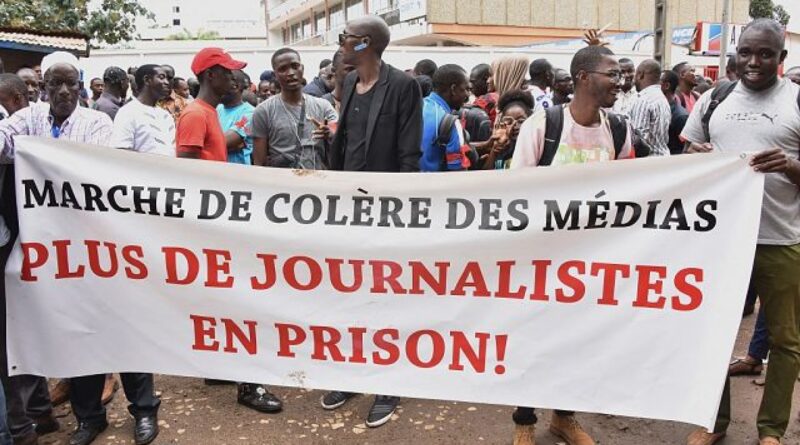Sahel region singled out on World Press Freedom Day
On World Press Freedom Day the journalists’ rights group Reporters Without Borders said it was concerned the Sahel region is in danger of becoming “Africa’s biggest news blackout zone.”
In a gloomy report published a month ago, Reporters Without Borders denounced a “constant deterioration” in the working conditions of the local and international press in the Sahel.
Thirty media outlets, journalists’ associations and freedom of expression organisations on Wednesday called on the ruling juntas in Mali and Burkina Faso to protect journalists in the face of growing threats.
Mali and Burkina have been ruled by juntas since 2020 and 2022 respectively.
The 2023 edition of the World Press Freedom Report points in particular to the effects of disinformation.
Christophe Deloire, the Secretary-General of Reporters Without Borders, pointed to leaders of digital platforms, such as Twitter’s owner Elon Musk, who he said are not concerned whether the information they distribute false or accurate.
“Reliable information is being drowned out by a deluge of disinformation,” says Mr. Deloire, according to whom “we can perceive less and less the differences between the real and the artificial, the true and the false.
“One of the major challenges is to put democratic principles back into this gigantic market of attention and content,” he says.
In two thirds of the 180 countries evaluated, the specialists who contribute to the ranking “report the involvement of political actors” in “massive disinformation or propaganda campaigns”, according to RSF.
This is the case of Russia, India, China and Mali.
Another phenomenon is fake content created by artificial intelligence (AI).
Political propaganda, economic manipulation, false content generated by artificial intelligence: disinformation in the broadest sense is a major threat to press freedom worldwide warns in its 21st annual ranking.
“Midjourney, an AI that generates very high definition images, feeds social networks with increasingly plausible fakes”, underlines RSF, citing false photos of Donald Trump’s arrest “taken up virally”.
We are also witnessing “large-scale manipulative productions” by specialised companies, on behalf of governments or companies.
In February, a vast investigation by the investigative journalist collective Forbidden Stories revealed the activities of an Israeli company called “Team Jorge” that specialises in disinformation.
All these “unprecedented manipulation capacities are used to weaken those who embody quality journalism, at the same time as they weaken journalism itself”, warns RSF.
Without change, the best rated country is Norway and the last one is North Korea. France is 24th and gains two places. Overall, the conditions for practicing journalism are poor in 7 out of 10 countries.

